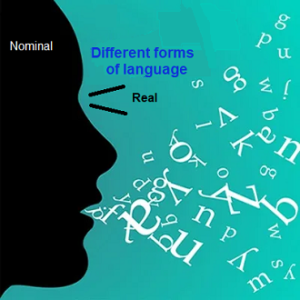
Arquivo para a ‘Information Science’ Categoria
Pure heart and overcoming
Only those who manage to maintain a pure heart, a desire to always move forward, need to go beyond the world full of hurt, resentment and hatred, of valuing the “I” and not the Other, overcoming is possible if we don’t look at what passes and is of little value.
a desire to always move forward, need to go beyond the world full of hurt, resentment and hatred, of valuing the “I” and not the Other, overcoming is possible if we don’t look at what passes and is of little value.
Challenges, pains and difficulties are part of life. Winners are those who go beyond these contingencies and, more than that, show solidarity with those who pass by them.
The Korean-German philosopher Byung-Chul Han wrote: “Thus, every critique of society must carry out a hermeneutic of pain. If we leave pain to medicine alone, we miss out on its character as a sign” (Han, 2021), because we don’t know how to overcome pain and we don’t have solidarity with those who suffer.
In his book The Palliative Society: Pain Today, he wrote: “The art of suffering pain has been entirely lost to us … Pain is now a meaningless evil that must be fought with painkillers. As a mere bodily affliction, it falls entirely outside the symbolic order” (Han, 2021, p. 41).
Society finds it difficult to experience empathy, happiness and and affectivity, it is condemned to silence, and “the palliative society does not allow us to revive, to verbalize the pain in a passion” (Han 2021, p. 14), emphasis added, so passion seems to lose meaning or to be “a weakness”, when in fact it is from it that we draw the desire to persist and move forward.
In this way, we can transform pain into love, and better than this, we can better understand what passion is and what com-passion is, feelings that are becoming less and less the order of the day. The desire to diminish the other, as haters, memes and the denial of the Other do, makes society more aggressive, valuing not pain, but ´haters´, mockery and humiliation.
Believing and persisting in the belief in fundamental values for true humanism is an essential source of civility, which can contribute to a positive civilizing process in which what is most human can be valued.
In the photo above, System of Pain/Networks/Networks of Resilience, curated by Cecilia Vargas, at the Dickson Center at Waubonsee Community College, 7 June, 10th July, 2018
Han, B.-C. (2021) A sociedade paliativa: a dor hoje: Trad. Lucas Machado. Brazil: Petrópolis, Vozes, 2021.
The logic of the hater
The word is at the center of heated discussions, expressions of anger and little empathy, the logic of “me” first has entered all circles, from family to politics.
expressions of anger and little empathy, the logic of “me” first has entered all circles, from family to politics.
The translation into Portuguese would be “hater”, but given how little this word is used in Portuguese, I believe that hater will end up being nationalized, and by the way, many people don’t like the use of words like meeting, coach and open house or home-office (in Brazil not translate), although many people use them, but we have examples from the past: abajour (from French, lampshade used in Brazil), software (from English, not translate in Brazil), sauerkraut (German) and schoppen (which became chope in Brazil “draft beer”, from German) and which has nothing to do with shopping, it is to buy.
We need to avoid “hater”, “bullying”, which leads to a type of moral harassment, as well as the meme, which if used in its origin (it comes from the Greek mimesis) would be a basic unit of cultural transmission, which means imitation, but which has been transformed into a malicious analogy, for example, a certain public figure as an animal.
At the root of all this cultural perversion is not the introduction of new words into the spoken language, which in itself is not evil, but done in an evil way it becomes some kind of cultural intimidation, which leads to prejudice and hence violence.
At the root of all this cultural perversion is not the introduction of new words into the spoken language, which in itself is not an evil, but done in a malicious way it becomes some kind of cultural intimidation, which leads to prejudice and hence violence.
It’s not just a lack of empathy, it’s respect for what’s different, it’s the desire to include the Other. Various authors have written about this (Paul Ricoeur, Emmanuel Lévinas, Habermas, Todorov, Martin Buber, etc.) No contemporary philosophy worthy of the name should fail to address this issue, after all it’s a “being” of a world in common, so Being-in-the-world becomes a “being-with-the-others” in a shared world (mitwelt).
This change in behavior begins in the heart and soul of the “dasein”, where Heidegger’s clearing can open up in the midst of a dense and dark forest.
Not looking at the Other with its dignity (Ricoeur wrote “other”, Buber wrote “the sacred self”) is different from the I-that that much of philosophy also explores.
The purified heart empathically accepts the Other as a form of its Being.
Mitigated war and distant peace
Both the Gaza Strip and Ukraine are being mitigated, the two main wars and the most threatening of a total war. The expectation of peace from the Trump administration has not materialized, what he wants is a Roman pax, that is, the rule of the vanquished.
mitigated, the two main wars and the most threatening of a total war. The expectation of peace from the Trump administration has not materialized, what he wants is a Roman pax, that is, the rule of the vanquished.
The current US government is negotiating rare earths with Ukraine in exchange for equipment. These earths are expensive and are used both in camera lenses and telescopes, for greater visual precision, and in oil refining, in a process called cracking.
Ukraine’s president, Volodymyr Zelensky, said on Friday (February 7) that he was willing to make this deal in exchange for support for the war. The region near the Dnipro River is rich in this ore, and reveals the true interests of the war, in addition to Ukraine’s strong grain production.
In the Gaza Strip there was another prisoner exchange, on Saturday (February 9) three people kidnapped by Hamas were exchanged for 183 Palestinian prisoners. The return of the Israelis didn’t end the drama, because when they arrived they discovered that their relatives had been killed in the October 7 attack that started the conflict.
Trump’s plan for Israel, however, is the domination of the Gaza Strip region, where the Palestinians consider their territory, was hailed by Netanyahu as “revolutionary”, while for the Palestinians it means the continuation of the conflict and the constant threat within their borders.
On Sunday (02/09) the complete withdrawal of Israeli troops was announced the complete withdrawal of Israeli troops from the so-called Netzarim corridor, which divided the Gaza Strip in two, allowing displacement from south to north (photo).
Trump is pursuing a policy of taxation, a veritable trade war, saying he will announce tariffs of 25% on aluminum and steel imported by the country today, the decision affects Brazil, the Ministry of Development, Industry, Trade and Services (MDIC) said it will not comment.
The US withdrawal from the WHO (World Health Organization) was also announced, followed by Argentina. Trump accuses the Organization of diverting funds to other purposes and using these funds politically, contrary to American interests.
Trade with China and Russia has also been shaken. Yesterday, the Baltic countries of Estonia, Latvia and Lithuania completed the migration of Russia’s electricity grid to the European Union system, ending Soviet-era ties and seeking greater security for the countries.
The scenario is one of war mitigation and could escalate at any moment, but the hope of building a sustainable peace has not been abandoned, and forces in the Arab world and Europe are still seeking diplomatic solutions to these brutal wars.
Economic interests are at stake, above political ones. Tempers are out of control not only in the countries at war, but everywhere there is polarization.
The return to serenity, the awareness that in war everyone loses, and those who lose the most.
Urgent: the Islamist group accused Israel of violating the ceasefire by attacking civilians trying to return to the north of the Gaza Strip and Israel put its forces on high alert.
Evil and truth
When Augustine of Hippo (354-430 AD)  broke with Manichaeism (the division between good and evil), he became a Christian and, in order to solve his main problem, he saw that evil is the absence of good and therefore the absence of Truth.
broke with Manichaeism (the division between good and evil), he became a Christian and, in order to solve his main problem, he saw that evil is the absence of good and therefore the absence of Truth.
Based on Augustine’s model, evil for Leibniz established the foundations by which a world with evil brings more good and therefore a world without evil is better, in his Monadology he established: “an imperfection in the part may be necessary for a perfection in the whole” and therefore the parts depend on the whole for the (rational) truth as he conceived it.
Leibniz (1646-1716) was influenced by Augustine, and theorized that truth is related to reason: “I understand by reason, not the faculty of reasoning, which can be used well or badly, but the chain of truths which can only produce truths, and one truth cannot be contrary to another”, so from a half-truth a truth cannot emerge, this is the problem of contemporary narratives.
This is the key to establishing the virtues, which are capable of exercising the moral good, and from this stems the public good. The current social problem is not just due to the search for the common good, it is necessary for it to be growing and sustainable for there to be moral virtues.
Thus, there is no justification for theft or small deviations, as biblical wisdom says: “he who is not faithful in little is not faithful in much” (Luke 17:10-11), and a permissive society cannot bear fruit for the construction of the common good and the public good.
The problem of truth, is established by the method in the Phenomenology, the German philosopher Husserl (1859-1938) will say that truth occurs through phenomena that are observable, perceptible and sensitive: “we call this phenomenology”, so truth has a method that can be observed in everything that happens around us.
Moral relativism makes truth something linked to the morals of that group. In the previous post, we recalled that it was first dealt with in Plato’s book Theaetetus, whose central concern was to combat the Sophists and create a true citizenry; in general, the book is a rejection of theses that manifest some form of mixture between reason and sensation.
We need to defend and take a strong stand on the side of the moral good and for this we need fraternal love, but it cannot be separated from the cardinal virtues.
Wisdom and changing course
Among the virtues is wisdom. In times of disconnected narratives and little knowledge, countless sages of half-truths emerge, prophets with impure hands and lives, and there is an audience to applaud them.
disconnected narratives and little knowledge, countless sages of half-truths emerge, prophets with impure hands and lives, and there is an audience to applaud them.
So it is necessary to despise wisdom, to read little, to trivialize what is good and beautiful, to violate even the simplest reasoning about the preservation of life, justice and the dignity that every human being possesses, and it is no coincidence that the word of 2024 was “brainrot”.
Not just because we bombard our brains with bad food, but mainly because we abandon good reading, good culture and the good faith of someone who has really changed course.
The biblical figure who made this radical change of course, and was a wise man with great knowledge of Judaism and Greek culture, is Saul of Tarsus, who was born in this city in Cilicia in the year 5 AD and was initially a great persecutor of Christians, being held responsible for the death of Stephen, the first Christian martyr.
He had a mystical vision of Jesus asking “why are you persecuting him” and was blinded on his way to Damascus (photo). Whether this was a metaphor or not is not the important thing, he was told to go and meet the Christian Ananias, where his sight was restored.
Blindness made him go beyond the limits of Jewish traditions, even with controversies such as the discussion with Peter about circumcision, but the Bible itself reminds us that we have eyes and cores that are uncircumcised (*Dt 10,16) and this explains the blindness of Saul, now transformed into Paul.
He will be important for the change in mentality that leaves the Jewish realm and goes to the Greeks and Romans, without him perhaps Christianity would remain a Jewish sect, and his wisdom deeply influenced Augustine of Hippo and Thomas Aquinas, important thinkers for Christian thought and there is no denying the need for wisdom.
The religion of precepts, which excludes many and doesn’t allow many people to change course, is in rapid decline, and this applies to culture in general, with an urgent need for a spirituality that encourages true asceticism.
It’s not emotions, well-crafted and even elaborate speeches that provoke a “change of route”, but a clear awareness of the human and spiritual needs of our time.
It is not uncommon for those who propose these speeches to call for exclusion, for social disruption and see in this a “prophetism” that cannot be achieved by impure hands.
What is divine is transparent and clear, it comes with serene and clear language, with attitudes that prove a change of course, without example any speech is empty even if it excites and provokes emotions.
*Deuteronomy 10,16: “Circumcise therefore the foreskin of your heart, and be no longer stubborn.”
Language and evil
Human language is as complex as man himself, so without a vision of Being in its complexity (it is onto-logical) and without an accurate understanding of linguistic functions (see previous post) we make the mistake of understanding that the logic coming from media and devices overrides human logic and can “control” reality.
so without a vision of Being in its complexity (it is onto-logical) and without an accurate understanding of linguistic functions (see previous post) we make the mistake of understanding that the logic coming from media and devices overrides human logic and can “control” reality.
Wittgenstein, in his Tractatus Logico-Philosophicus, reinforces the idea that: “language is a garment that disguises thought. And indeed in such a way that one cannot infer from the outer form of the garment the form of the thought clothed in it, because the outer form of the garment has been constituted for purposes entirely different from making the form of the body recognizable” (Wittgenstein, proposition 4002).
This is also true of metalanguage, where the digital media is the garment (not the network, because it is a network of relationships), it is dressed up to omit the purposes for which many people use it, but the problem is not only socio-political, it is also moral and ethical.
This omission in language allows linguistic acts to be carried out with absolute immorality despite “freedom”; it is much more than a simple expression in “clothing”; it is a way of corrupting and destroying core values of the civilizing process.
Separating what is good from what is evil based on the garment is also a tricky task, as one cannot make common mistakes: preventing free expression, discerning the intentions hidden in the “garment” and, above all, to discern the intentions hidden in the “garment” and above all to defend the “foundations” of truth.
Truth is ontological and does not follow common logic, it aims to respect the being, their dignity as a person, the right to basic freedoms and especially the right to life, today under a rather confusing “garb” of rights to death, where war and exclusion are the main ones.
Language itself, as an everyday expression of communication, is being abused and deteriorated more and more every day, to the point of making it difficult to even achieve what was already the achievement of millennia of civilization: communication between two people and in narrative´s time the evil is more present in bad communication.
You can’t separate the evil that lies under the guise of “words” and linguistic use, without paying attention to structural truths that date back millennia in the civilization process: the right to Be (life), the right to freely express one’s ideas and principles, the right to come and go and the right to make choices that don’t harm these rights of each Other.
You don’t get good from evil, and what is present in language must be purified.
Wittgenstein, Ludwig. (2023) Tractatus Logico-Philosophicus. Brazil: Criciúma, SC: Editora Convivium, 1ª. edição eletrônica.
Narrative, language and communication
Korean-German philosopher Byung-Chul Han says: “Today we live in a post-narrative time. Not narrative [Erzählung], but counting [Zählung] determines our lives.” (Han, 2023, p. 48).
says: “Today we live in a post-narrative time. Not narrative [Erzählung], but counting [Zählung] determines our lives.” (Han, 2023, p. 48).
To better understand this sentence, just for didactic purposes we have categorized the literary genre into 3: narrative or epic, lyrical and dramatic, the narrative is linked to the “telling” (zählung) of a story and therefore not should be confused with the actual narratives (Erzählung, in German), see that they are differentiated by the prefix “Er”, so the telling must have a narrator, a plot, the characters in time and space, that is, in a context.
Lyric is also a genre that refers to texts with subjectivity and connotations, they can be in prose or verse, but they are also a different type of storytelling from modern narratives, many authors complain about the lack of poetry, and Heidegger pointed out that this is another function of language.
The dramatic text is also a genre in which acts, scenes, rubrics and lines are presented, so it is part of a theatrical form or a-presentation, in the sense that the presentation is both a telling of a story and its negation, since it involves fiction.
The dispute between nominalists and realists in the lower middle ages (11th to 14th centuries) ended up neglecting the importance of language, but the linguistic turn of the late 19th century brought its importance back to the forefront.
The beginning of modernity is marked by the rupture between the metaphysical function of language and the use of objectivity as a mode of expression, but this is only one of the functions of language. The Russian linguist Roman Jacobson recalls the functions: phatic, poetic, conative and metalinguistic, in which modern codes are inserted, for example: Morse, digital and quantum, where “the code explains the code itself, that is, the language explains the language itself”, and this must be the only context where the concepts of sender/receiver apply.
The linguistic turn occurs in the midst of the crisis of idealist and positivist thinking in modernity: Husserl, Heidegger, Hanna Arendt are fundamental, although they are most remembered: Noam Chomsky, Mikhail Bakhtin, Michel Foucault and Ferdinand de Saussure.
Returning to Byung-Chul Han’s initial quote: “Narrative is the capacity of the spirit to overcome the contingency of the body”, this capacity to overcome the contingency of the body is linked not only to the memory of poetic and conative language, but also to the spiritual meanings and values that modernity has abandoned under the pretext of creating an “objective” vision.
The telling of the stories of peoples, their cultures and religions are thus key factors in overcoming such a dramatic moment in the history of communication, where communication itself, the fruit of millennia of evolution in human culture, seems to be in question.
Proclaiming words, stories and beliefs is a universal right, attempts to prevent these rights is not only a motivation for divisions and hatred, it is fuel for wars.
Society in bubbles
The question of the Other has arisen in philosophy as a result of a self-centered philosophy coming from extreme rationalism, which exploits exacerbated hedonism, utilitarianism as a way of life and economy, in a society of rights without duties, where what goes for me doesn’t go for the Other.
philosophy as a result of a self-centered philosophy coming from extreme rationalism, which exploits exacerbated hedonism, utilitarianism as a way of life and economy, in a society of rights without duties, where what goes for me doesn’t go for the Other.
Philosophical authors such as Paul Ricoeur (cited even by the Pope), Emmanuel Lévinas and Martin Buber, who comes from a Jewish philosophy, speak of this existential emergency that is the relationship with the Other, but our closed circles try to establish narrative half-truths that are only valid for our bubbles.
The essential existential question of who is the Other, Martin Buber, in The I and the Thou, comes to see the most sacred in the Other and the question is, in a way, in Peter Sloterdijk’s Spheres I, where he says that children seem to be born with a kind of “instinct for relationships”? which develops throughout the book the idea that we are not born alone and, therefore, through cooperative work and language, we should socialize, and bring out this inner instinct for the relational.
Sloterdijk rejects the liberal, idealistic principle of Cartesian origin, where the isolated individual seeks his existential reason. He starts from an ontology where the primitive is always Two, but if we include the divine that Buber saw, we are three.
But he’s not so idealistic as to say that these two are fused, we could say using Gadamer’s concept, who sees in the “hermeneutic circle”, a “fusion of horizons”, and so we can think of the individual who comes out of the placenta, which will then be dead, as coming out of their primordial bubble, and finding themselves somewhat separated from their mother.
The pre-modern world had a model, for which this separation was not total, of remaining in subjectivity or intimacy (not the interiority that does not separate), this can be seen in some peoples who planted the placenta like trees, and others, like the Egyptians who made pillows, and in the tombs of the pharaohs were buried with them, as if to remain in the initial existential bubble.
We are thus seen in the self-sufficiency of the liberal model, but this model is also criticized, for example, by Rousseau, who sought an isolated life of non-thinking, see as in the experience of the lake, in his writing of the daydreams of the solitary walker, compatible with his model of the man of the good savage, on which many modern democracies are inspired, Rousseau was the contractualist of the most liberal model.
Even the hope of regaining a “general will”, in a stronger state, where a kind of “national religion” is proclaimed, which today erupts in nationalisms all over the planet, is nothing more than a contemporary vision of a self-sufficient “bubble” of various kinds of social closure in ‘communities’, but with a selfish principle inside, what Sloterdijk calls an “inflated community”, social media are just “means” where these ideas of bubbles are propagated.
Truth and justice will meet
The encounter between truth and justice still challenges most thinkers, Hans-Georg Gadamer, in his book Truth and Method, highlights the two points that are still obstacles to this dichotomy: “The effective exemplarity that the new mechanics had and its triumph for The sciences of the 18th century, highlighted by Newton’s celestial mechanics, continued to be so evident to Helmholtz that he was far from asking what philosophical preconditions had enabled the emergence of this new science in the 18th century. XVII” (Gadamer, 1997, p. 42), and points this out as a result of the Occamist School of Paris.
challenges most thinkers, Hans-Georg Gadamer, in his book Truth and Method, highlights the two points that are still obstacles to this dichotomy: “The effective exemplarity that the new mechanics had and its triumph for The sciences of the 18th century, highlighted by Newton’s celestial mechanics, continued to be so evident to Helmholtz that he was far from asking what philosophical preconditions had enabled the emergence of this new science in the 18th century. XVII” (Gadamer, 1997, p. 42), and points this out as a result of the Occamist School of Paris.
Wiliam Ockham (1276-1347) was a Scottish monk who established the principle of “Ockham’s Razor” which says that between two explanations you should take the more and this reached the studies of the 17th and 18th centuries, and Helmholtz was the one who tried to separate the sciences of nature from their historical derivation, because this way the sciences of the spirit could be worked on.
Gadamer has the merit of unveiling (it is not the unveiling that would be reaching the Truth), when analyzing Dilthey’s historical romanticism: “with regard to this independence of the methods of the sciences of the spirit, Dilthey continues to link it to the ancient “Natura parendo vincitur” “ (Gadamer, 1997, p. 44) and thus Newtonian principles continued to prevail in the “Sciences of the Spirit” and thus the true bases of these sciences remain linked to logicism.
The meaning of the Latin term is “Nature is overcome when giving birth”, it links the natural to the supernatural, and thus ends up denying it, this was Kant’s intention (sapere audi, to dare to know) and which became enshrined in modernity by Hegel: “the real is only an aspect of the ideal”.
In idealism there is no concept of virtue (areté), but of training as a personal discipline, Wilhelm Von Humboldt corrected this: “When we, however, in our language say training, we are referring to something at the same time more intimate , that is, to the nature that comes from the knowledge and feeling of the set of spiritual and moral commitment, to spill harmoniously into sensitivity and character” (Gadamer, 1997, p. 49).
Thus, modernity abolished metaphysics, what is beyond physis (since the Greeks means nature) and the supernatural (that which is above nature, the superno natura).
Thus, in a reductionism of truth, when we seek justice we think it is correct to use half-truths (the means justify the ends) and when we say we defend the Truth, we think it is correct to suppress conditions of human and divine justice to defend it, there is a link between them Justice without Truth is mutilated, Truth without Justice is half-truth
GADAMER, H.G. (1997) Verdade e método. Trad.de Flávio Paulo Meurer. Brazil: Petrópolis, RJ: Vozes.
For a true asceticism
Peter Sloterdijk, despite being an agnostic, points out a “spiritual” defect in today’s society: it is a “society of exercises” that do not lead to a true inner “ascent”; it is a society of agitation, looking for “efficiency”, the “society of tiredness”.
points out a “spiritual” defect in today’s society: it is a “society of exercises” that do not lead to a true inner “ascent”; it is a society of agitation, looking for “efficiency”, the “society of tiredness”.
The lack of time for meditation, for exercising the mind and soul, is leading to “brainrot”, the word of the moment according to Oxford University, which has included it in the dictionary, meaning rotten brain. It’s not just a question of consuming bad information, ignorance and the lack of exercise in a “contemplative life” as Byung Chul Han calls for creates a space in the mind for this type of thinking to grow.
We create a culture that isn’t even counter-culture in the sense of civilizational evolution, it’s just something rotten, we bombard our brains with fragments of thoughts, spiritual fragments without them completing each other and forming within us a true spiritual asceticism.
It’s empty activism, and to fill it we need more narcotics and food to fill the body’s emptiness while the mind remains empty, this same emptiness that could serve to create a “contemplative life” that would support asceticism and a balance in the virtuous circle.
Chul Han also recalls painting, quoting the work of the Frenchman Paul Cézanne: “Painting means nothing more than ‘letting go of the friendship of all these things in the open air’” (Han, 2023, p. 49).
It’s not just media culture that does this, it’s the absence of structural values of virtue and morality.
The loss of culture (or what remains of it according to Antoine Daniels) is this inability to see beauty and truth.
Of course, true asceticism, in the spiritual sense, cannot fail to encounter the divine, and as for useless “exercises” to take a “bath in spirituality” only to come out empty and without encountering being, says Han: “in the deep layers of being, they are suspended” (Han, 2023, p. 49).
It’s not just media culture that does this, it’s the absence of structural values of virtue and morality.
“The landscape of inactivity,” writes Byung Chul-Han about Cézanne, ‘breaks with nature made human and restores a non-humanized order of things in which they can meet’ (Han, p. 50).
Still quoting Cézanne: “Ah! Landscape has never been painted. The human being must not be there, but must have found himself entirely in the landscape” (p. 51), the ‘noisy self’ must be ‘silenced’.
How many people participate in the “exercise society” just to laugh and get emotional, without having “entered the landscape”, without the slightest contact with the divine, needing noise, food and drink to fill the emptiness they have in their souls and not in their stomachs?
Only an exercise in true asceticism can lead us to Love, the synthesis of the virtues, but without forgetting them: it introduces us to balance, courage, listening and sincere social relationships.
HAN, B. C. Vita Contemplativa (Vita Contemplativa: or on inactivity). Trad. By Lucas Machado. Brazil. Petrópolis, RJ: Vozes, 2023.

